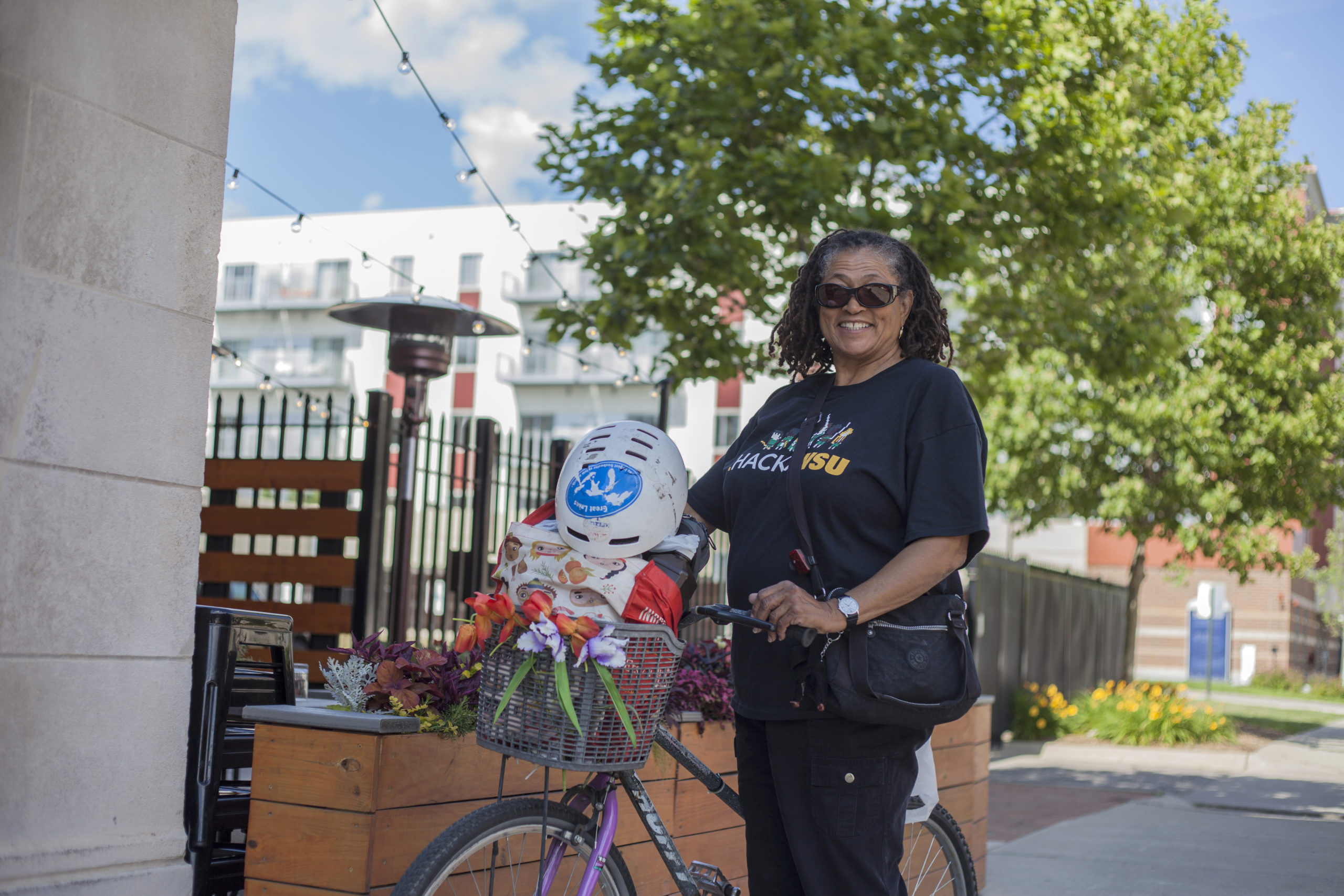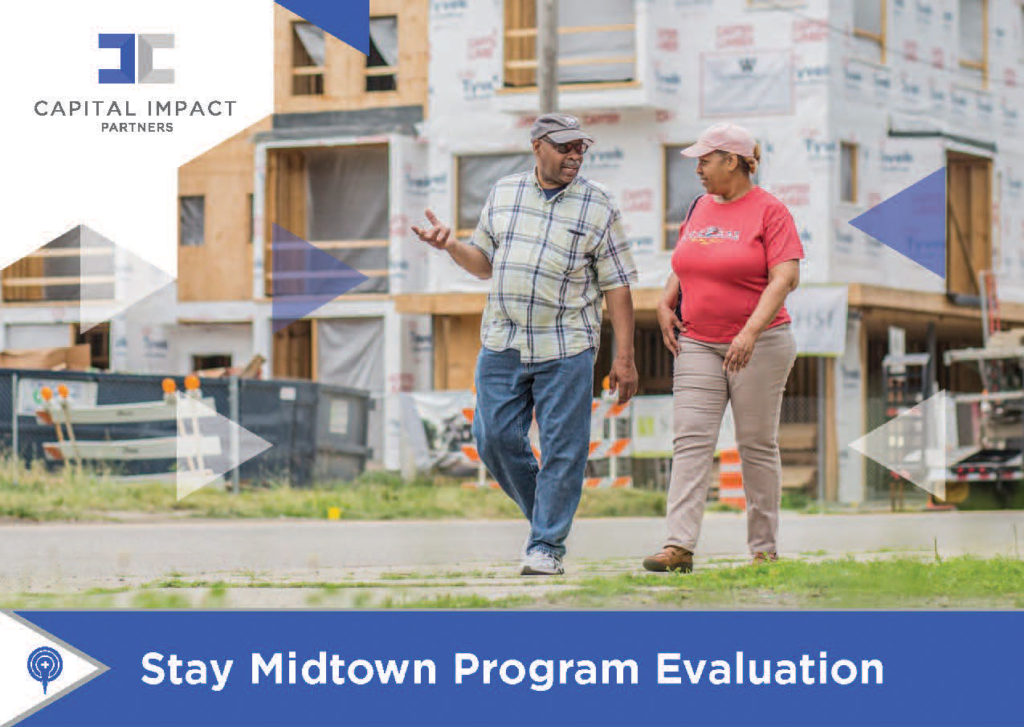By Ashlee Cunningham, Senior Specialist, Housing and Community Development
In Detroit, long-term disinvestment in the city’s neighborhoods has led to unequitable barriers to opportunity. Systemic racism and disenfranchisement limited opportunities for many Detroiters, more than 80 percent of whom are Black. That has kept many people from securing equitable access to safe, affordable housing; starting businesses; and other pathways to wealth building. As Detroit has worked to overcome bankruptcy, investment in the city has compounded these issues by leaving people living with low incomes with little ability to keep up with the pace of growth and gentrification for the neighborhoods they have called home for decades.

Many long-term Detroit residents, many of whom are people of color, struggle to keep up with the pace of growth and gentrification in Midtown.
In 2016, Capital Impact Partners (Capital Impact) and Midtown Detroit, Inc. (MDI) launched Stay Midtown, to address the housing supply gap for long-term residents living in Detroit’s rapidly redeveloping Midtown neighborhood. Because of their economic status amidst the growth of the city, these residents were at risk of displacement. The objective of Stay Midtown was to help them maintain housing security during this period of high demand and limited supply, which was anticipated to lessen given increases in affordable housing options across all income levels by 2019 or 2020.
Stay Midtown Program
Stay Midtown aimed to reduce the housing cost burden and increase housing and financial stability for 150 residents or households that have lived in Midtown Detroit. The program provided up to $1,500 annually in rental assistance for three years to help reduce housing cost burdens and help reach targeted levels of housing affordability for that area of the city.
To be eligible for assistance, applicants needed to:
- be a current resident of a property within the Stay Midtown program boundaries and a resident for two consecutive years prior to program enrollment;
- have a household income between 30 percent and 80 percent of the Area Median Income (AMI);
- experience a cost burden of more than 30 percent of total household income; and
- be unable to receive other federal housing subsidies/ vouchers or other housing assistance programs.
Since 2016, the program has provided rent assistance to 152 households and supported an additional four households with relocation services.
What were our findings?

Stay Midtown found an innovative way to support Detroit residents to maintain affordable housing, even as Midtown housing prices rose.
Capital Impact conducted an evaluation of Stay Midtown to determine the program’s effectiveness in meeting established goals and its impact on participants. Our findings include:
- Housing cost burden impacts nearly 74,000 rental households in Detroit.
- Many Stay Midtown participants were interested in receiving information on affordable housing alternatives, but were unsure of how to access the information.
- Stay Midtown helped participants reduce their average housing costs from 42 percent of household income to 37 percent. Twenty-two percent were able to reduce their housing costs to 30 percent of their household income.
- Ninety-five percent of participants said that participating in Stay Midtown made it easier to afford other essential items and household expenses.
- Fifty-six percent would have sought lower-cost housing outside the district or city without the opportunities offered by Stay Midtown.
Read our evaluation to learn more about how Stay Midtown has helped to stabilize housing and create a chance at economic mobility for Detroit residents with low incomes.
We invite you to reach out to Capital Impact Partners and Midtown Detroit, Inc. to learn more about Stay Midtown and the evaluation. You can also reach out to Capital Impact to learn about our participation in other housing programs that support equity and avoid displacement.









